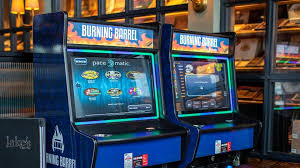
The debate surrounding the legality of gambling in Pakistan is complex, especially when it comes to slot machines. While gambling remains illegal in most forms in the country, there exists a thriving underground market where illegal slot machines continue to attract gamblers. On the other hand, there are also attempts to introduce regulated and legal gambling alternatives, though these have yet to be fully realized. In this blog, we’ll explore the differences between legal and illegal slot machines in Pakistan, examining their impact on society, economy, and the general gambling culture.
The Legal Landscape of Slot Machines in Pakistan
Gambling is heavily regulated in Pakistan, and most forms of it are illegal under the country’s laws. The Gambling Ordinance of 1977 strictly prohibits any form of betting and wagering, including activities involving slot machines. As a result, there are no officially licensed casinos or gambling establishments where slot machines can legally operate.
However, there have been occasional discussions about the possibility of legalizing gambling in regulated environments, including casinos and slot machines. Proponents argue that legalization could offer economic benefits, such as tourism revenue and job creation, while also addressing the issue of illegal gambling. But these discussions are still in the early stages, and no concrete steps have been taken to formally introduce legal slot machines in Pakistan.
The Rise of Illegal Slot Machines
Despite the country’s strict laws, illegal gambling remains prevalent, with underground casinos offering slot machines and other games of chance. These illegal establishments operate in the shadows, often in hidden locations or disguised as entertainment venues. Many of these places are hard to trace, which allows them to thrive without facing the legal consequences they would in regulated markets.
Illegal slot machines are often linked to organized crime, as they provide a lucrative source of income for operators who are not bound by any regulatory framework. These unregulated machines are typically unmonitored, meaning players are vulnerable to unfair practices, such as rigged games and unprotected financial transactions. In addition, since these businesses are operating outside the law, there are no safeguards in place to protect individuals from gambling addiction or to ensure that minors are kept away from gambling activities.
The lack of regulation in these illegal venues makes it difficult for authorities to monitor or control their operations, resulting in a dangerous environment for gamblers. The anonymity of online gambling platforms, where illegal slots are also widely available, only exacerbates this issue.
The Social and Economic Impact
Impact of Illegal Slot Machines
The presence of illegal slot machines in Pakistan carries significant social and economic consequences. For one, illegal gambling contributes to the erosion of social norms and values. Since gambling is often linked with addiction, families often bear the brunt of the financial and emotional toll. Many gamblers fall into deep debt, losing substantial amounts of money, which impacts their personal lives and the well-being of their families.
Economically, illegal slot machines draw money away from the legitimate economy. Players who lose money in unregulated venues are not able to benefit from protections like refunds or compensations. Moreover, the lack of tax revenue from these businesses means the government misses out on potential economic gains that could otherwise support public services or contribute to community development.
Impact of Legal Slot Machines (Hypothetical)
If legal slot machines were to be introduced in Pakistan, the situation could improve significantly. Properly regulated casinos and gambling establishments could generate substantial tax revenue for the government, which could be invested in public infrastructure, healthcare, and education. Additionally, the legal regulation of slot machines would create a safer gambling environment where players are protected by laws and standards designed to prevent fraud and addiction.
Legalizing slot machines would also allow the government to monitor gambling behavior and ensure that operators comply with responsible gambling practices, such as age restrictions and fair play. With the right framework, a legal gambling industry could boost tourism and create jobs, as people would be more willing to visit licensed casinos, knowing they offer a safe and secure environment.
The Future of Slot Machines in Pakistan
Given the complex cultural, legal, and religious factors involved, it’s unlikely that the widespread legalization of slot machines will occur in Pakistan any time soon. However, if the government were to take steps toward regulating gambling in a transparent and responsible manner, there could be opportunities to reduce the impact of illegal gambling and provide safer alternatives for players.
Education on responsible gambling practices is also crucial. If the public is more informed about the risks associated with gambling addiction and how to access support services, they may be better equipped to make informed decisions about their involvement in gambling activities, whether online or offline.
Conclusion
The comparison between legal and illegal slot machines in Pakistan highlights the challenges and risks associated with the country’s gambling industry. While illegal slot machines continue to thrive in the shadows, the lack of regulation places players at significant risk, from financial loss to addiction. The introduction of legal slot machines, under strict regulations, could offer a safer and more controlled environment, with the added benefit of economic growth and revenue generation. However, until such reforms are made, Pakistan’s slot machine market remains an unregulated and contentious space. The question remains: can Pakistan’s authorities strike a balance between regulation and control, or will the illegal market continue to dominate? Only time will tell.
